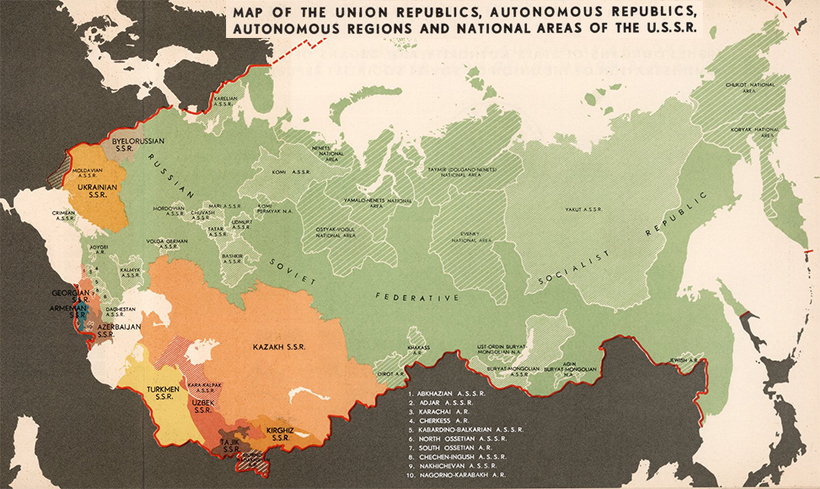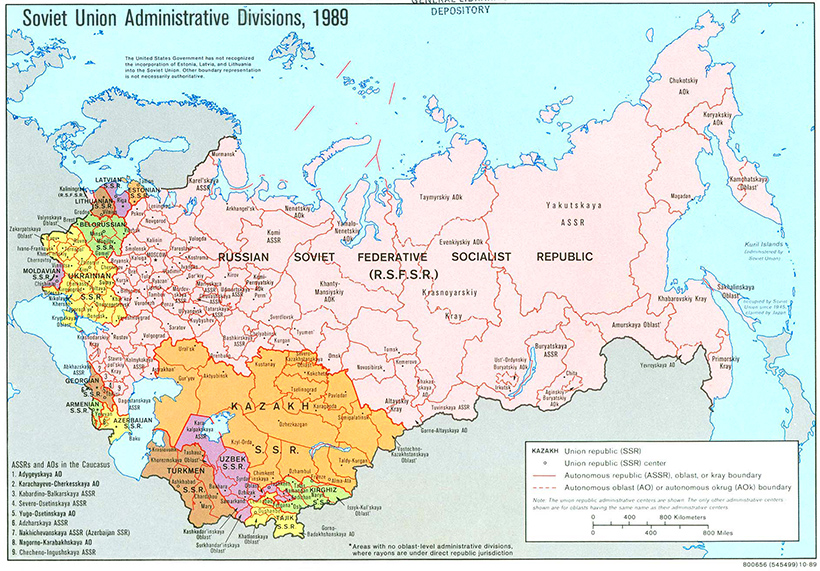Foreign Affairs, Nova York – 25.2.2022
The Coming Ukrainian Insurgency
Russia’s Invasion Could Unleash Forces the Kremlin Can’t Control
Douglas London
Russian forces have struck targets across Ukraine and seized key facilities and swaths of territory. The Ukrainian military is no match for this Russian juggernaut. Although some reports suggest Ukrainian troops have rebuffed attacks in certain parts of the country, it seems more likely that Russian President Vladimir Putin will decide just how far Russia goes into Ukraine. As a retired Russian-speaking CIA operations officer, who served in Central Asia and managed agency counterinsurgency operations, I did not think Putin would have attacked Ukraine unless he had already devised a reliable end game, given the costs of an intractable conflict. But Putin’s best laid plans might easily unravel in the face of popular Ukrainian national resistance and an insurgency.
If Russia limits its offensive to the east and south of Ukraine, a sovereign Ukrainian government will not stop fighting. It will enjoy reliable military and economic support from abroad and the backing of a united population. But if Russia pushes on to occupy much of the country and install a Kremlin-appointed puppet regime in Kyiv, a more protracted and thorny conflagration will begin. Putin will face a long, bloody insurgency that could spread across multiple borders, perhaps even reaching into Belarus to challenge Belarussian President Alexander Lukashenko, Putin’s stalwart ally. Widening unrest could destabilize other countries in Russia’s orbit, such as Kazakhstan, and even spill into Russia itself. When conflicts begin, unpredictable and unimaginable outcomes can become all too real. Putin may not be prepared for the insurgency—or insurgencies—to come.
WINNER’S REMORSE
Many a great power has waged war against a weaker one, only to get bogged down as a result of its failure to have a well-considered end game. This lack of foresight has been especially palpable in troubled occupations. It was one thing for the United States to invade Vietnam in 1965, Afghanistan in 2001, and Iraq in 2003, likewise for the Soviet Union to enter Afghanistan in 1979; it was an altogether more difficult task to persevere in those countries in the face of stubborn insurgencies.
Russia can likely seize as much of Ukraine’s territory as it chooses. But plans to pacify Ukraine will require far more than the reserve forces Putin has suggested might occupy the territory as “peacekeepers” after initial combat objectives are met. Thanks to Putin’s aggression, anti-Russian fervor and homegrown nationalism have surged in Ukraine. Ukrainians have spent the last eight years planning, training, and equipping themselves for resisting a Russian occupation. Ukraine understands that no U.S. or NATO forces will come to its rescue on the battlefield. Its strategy doesn’t depend on turning back a Russian invasion, but rather in bleeding Moscow so as to make occupation untenable.
Any future insurgency will benefit from Ukraine’s geography. The country is bordered by four NATO states: Hungary, Poland, Romania, and Slovakia. Belarus, a Russian ally, is itself bordered by Poland on the west and another NATO member Lithuania on the north. These long borders offer the United States and NATO an enduring way to support Ukrainian resistance and a long-term insurgency and to stoke unrest in Belarus should the United States and its allies choose to covertly aid opposition to Lukashenko’s regime.
Moldova, to the southwest of Ukraine, is also an intriguing player. Although nominally neutral (neutrality is written into its constitution), Moldova has cooperated in the past with the United States and NATO; it has a somewhat frigid relationship with Moscow thanks to ongoing tensions over the breakaway republic of Transnistria, a narrow strip of land along the Moldovan-Ukrainian border. Moscow props up this separatist entity, which is garrisoned by Russian troops in the name of “peacekeeping.” Its role in Transnistria is pushing Moldova toward the West. Last November, Maia Sandu, a former Moldovan prime minister, defeated the Russian-backed incumbent president. Moldova is not likely to overtly provoke the Kremlin, but Sandu might be willing to covertly cooperate with Ukraine’s resistance.
As the United States learned in Vietnam and in Afghanistan, an insurgency that has reliable supply lines, ample reserves of fighters, and sanctuary over the border can sustain itself indefinitely, sap an occupying army’s will to fight, and exhaust political support for the occupation at home. Russia would also have to think twice before trying to chase insurgents across the border in Poland, for instance, since such actions could trigger war with NATO.
LINES OF SUPPORT
The United States will invariably be a major and essential source of backing for a Ukrainian insurgency. During the Obama and Trump administrations, the United States acted with restraint in responding to Russian cyberattacks, disinformation, and military expansionism. Washington did not want to unleash a spiral of escalation it could not control, risking Russian reprisals against U.S. banks, businesses, and infrastructure. The Biden administration, however, has so far been less tentative in its dealings with Russia. To counter Russian moves, it has exposed Russian-associated hackers and recovered funds stolen through cyberattack ransoms, extradited Russian oligarchs to stand trial in the United States, and declassified intelligence on Russian plans in Ukraine to unify support among allies and shape the media narrative.
If a viable, independent Ukraine remains standing, whether ruled from Kyiv or Lviv (the largest city in the western part of the country), the United States and its NATO allies can openly aid in its in defense with weapons, training, and cash. It’s reasonable to deduce that the CIA’s legal charter to partner with foreign intelligence counterparts has allowed it to provide training and materials to its Ukrainian partners for years, just as U.S. military trainers have worked with and supplied their Ukrainian counterparts.
This aid will have to become covert if Russia seizes the government and fully occupies the country. Military support for action against a sovereign country with which the United States is not at war has to be clandestine, much like U.S. support for the Afghan mujahideen against the Soviet Union in the 1980s, for Iraq’s Kurds prior to the 2003 invasion, and, less successfully, for rebels in Syria a decade ago. Attacking behind enemy lines would require a presidential covert action finding funded by Congress. Of course, a version of this authorization probably already exists and might at most need modification by the White House as a new Congressional Memorandum of Notification to accommodate the shifting circumstances.
Supporting an insurgency is in the CIA’s DNA. Its forerunner, the Office of Strategic Services, came into its own during World War II through supporting resistance forces in France, the Netherlands, and East Asia. The CIA’s recent experience in both supporting insurgencies and fighting them in Afghanistan, Iraq, and Syria prepares it well for opposing Russia’s modern, conventional forces. The United States can help Ukrainian insurgents in hitting targets with the greatest military value and psychological impact.
A Yahoo News report in January described a covert CIA training program for elite Ukrainian special operations forces and other intelligence personnel that was launched in 2015 by the Obama administration following Russia’s annexation of Crimea in 2014. According to the report, the effort included the deployment of CIA paramilitary officers to Ukraine. Such programs mature over time as trust grows between the trainers and their foreign counterparts and as the recipients teach what they have learned to others.
U.S. and Ukrainian officials have long planned for this day. In all likelihood, a covert program to help organize the resistance to Russia already has communications infrastructure, intelligence collection capabilities, and operational plans in place. And the tactics developed to support defensive operations against an invader can transition to those aimed at hobbling an occupying force.
FORCES UNLEASHED
An anti-Russian insurgency will no doubt face obstacles and endure setbacks. Putin is aware of the possibility of Ukrainian resistance to a wider Russian occupation. U.S. officials have alleged that the Russian government maintains lists of Ukrainian political and security officials it would arrest—or even assassinate—once it has seized the country and those of pro-Kremlin figures it would hope to install. Russia would seek to undermine any insurgency by moving expeditiously to eliminate likely leaders and enablers of the resistance.
An insurgency against Russian forces in Ukraine will take time to gather steam and achieve its goals. Resistance movements can take years—not months—to mature, organize, and achieve a meaningful offensive tempo. Even as an American, I could have easily walked the streets or dined in the cafes of Kabul in 2002 and Baghdad in 2003 without a care in the world. But a year or two later, I had to wear body armor and be accompanied by a protective security detail that ferried me around in heavily armored vehicles hoping to avoid ambushes and improvised explosive device strikes.
Ukrainian insurgents will have to reckon with advances in modern technology that make their work more difficult. During World War II, the Vietnam War, and the Soviet invasion of Afghanistan, organized bands of partisans could disperse to the countryside or to the hills. Escaping the reach of occupying forces is harder now thanks to drones, satellites, and thermal imagery. Insurgents will undertake cross-border raids but sustained military operations further behind enemy lines will require help from those living in such areas—people leading ostensibly normal lives who secretly have access to weapons and secure communications and can thereby evade Russian detection. The Russians will label the attacks of these operatives as acts of terrorism while people in the West will applaud them as the deeds of freedom fighters.
Early on, it is likely the Russians will uncover many rings of insurgents, quickly unmasking the insurgency’s initial leaders after years of Russian intelligence collection. But insurgencies adapt swiftly—far faster than the large, structured armies they are fighting—and new leaders emerge molded by their adverse early experiences. Their agility becomes an enormous advantage.
Russia would hope to either limit its incursion to parts of Ukraine whose populations might be more inclined to accept Russian rule or act with such lightning speed so as to seize and pacify the country before a viable resistance can find its legs. But Russia’s military advantages over Ukrainian forces will diminish as the enemy it fights changes from an organized army to a decentralized and mobile resistance. Occupation forces will be subject to harassing attacks designed to both inflict casualties and undermine military discipline. An influence campaign replete with horrific images of carnage—of both civilian Ukrainian and Russian military deaths—will aim to sow antiwar sentiment in Russia and counter Moscow’s narrative that their forces were welcomed as liberators by grateful locals.
Putin’s motivations in starting this war of choice remain the subject of great debate. They may become clearer in the coming days and weeks as Russia continues its offensive. But if his aims are maximalist—redrawing borders or even toppling the current government—an insurgency is inevitable. For both Putin and his enemies, it will be hard to control the forces that have now been unleashed.
DOUGLAS LONDON was a Senior Operations Officer in the CIA Clandestine Service for over 34 years, assigned to the Middle East, South Asia, Africa, and Central Eurasia. He is the author of The Recruiter: Spying and the Lost Art of American Intelligence.






 Estonia
Estonia Lithuania
Lithuania Latvia
Latvia Azerbaijan
Azerbaijan Georgia
Georgia Russian Federation
Russian Federation Uzbekistan
Uzbekistan Moldova
Moldova Ukraine
Ukraine Belarus
Belarus Turkmenistan
Turkmenistan Armenia
Armenia Tajikistan
Tajikistan Kazakhstan
Kazakhstan Kyrgyzstan
Kyrgyzstan